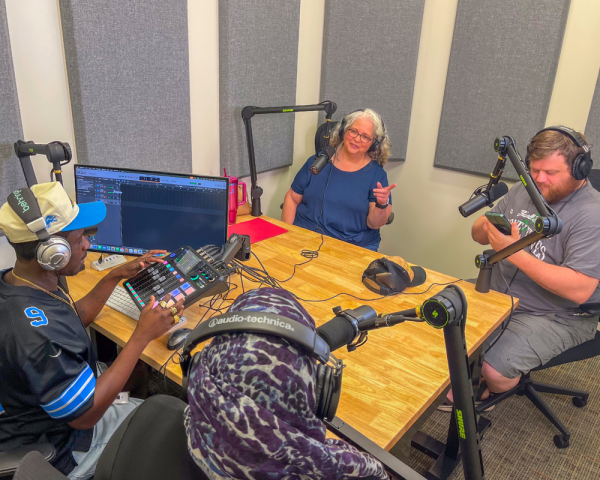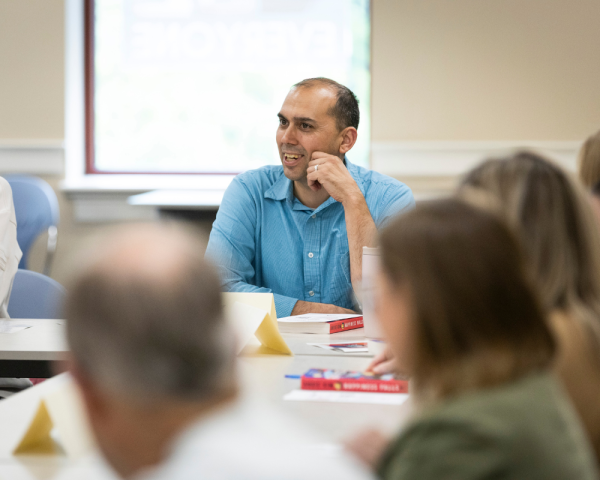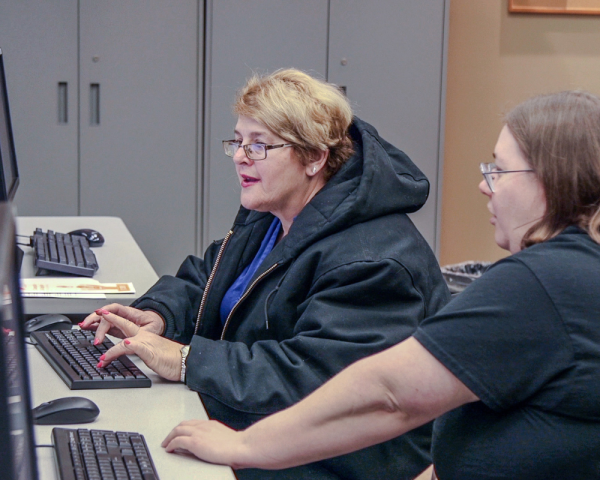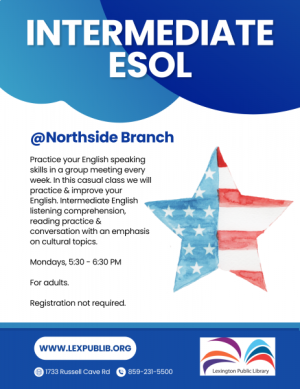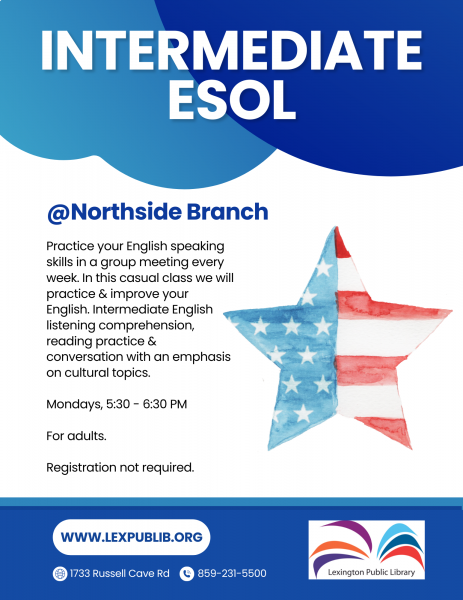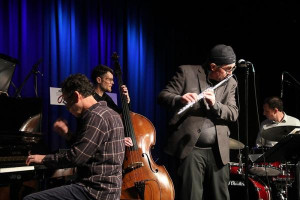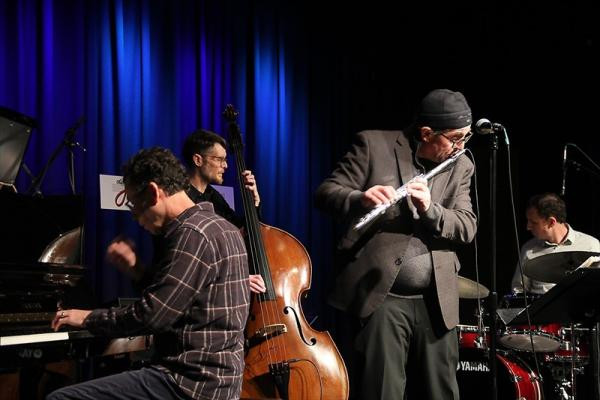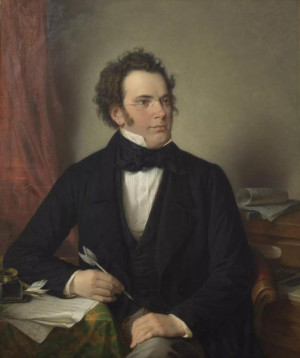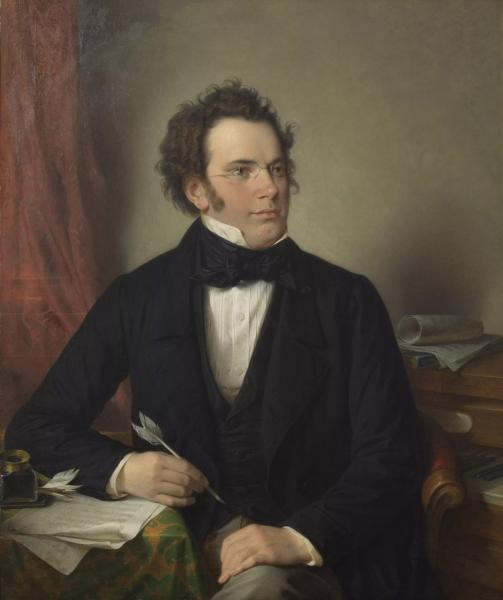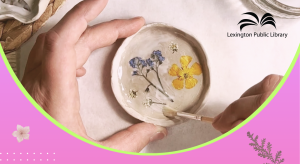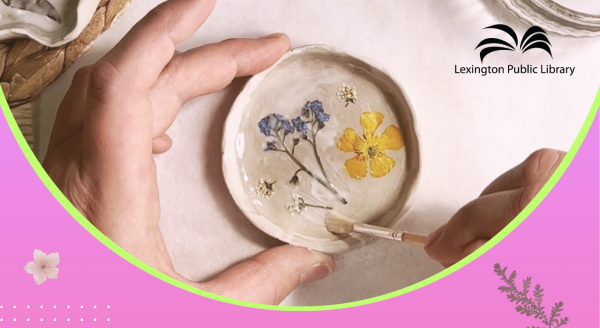

Website Search
Practice your English speaking skills in a group meeting every week. In this casual class we will practice & improve your English. Intermediate English listening comprehension, reading practice & conversation with an emphasis on cultural topics. For adults. Registration is not required. FALL CLASSES BEGIN AUGUST 11.
Registration is required; the book is available for pick up at the Beaumont Branch’s front desk. If you have any questions, please email mstout@lexpublib.org.
Join Northside staff to make Victorian-style valentines. Registration requested.
This month features Miles Osland on saxophone, Raleigh Dailey on piano, Brad Kerns on trombone, Danny Cecil on bass, and Paul Deatherage on drums. Live jazz the second Thursday of every month. Sponsored by the Jazz Arts Foundation.
Join us for an exciting introduction to Dungeons & Dragons and other roleplaying games! Whether you are a beginner or an experienced player, come learn and connect with a like-minded community. We will guide you through the basics and provide you with resources to keep the fun going. Come and discover a world of adventure! For teens & up.
What does it take to escape your destiny? Trying to leave their troubled lives behind, twin brothers return to their Mississippi hometown to start again, only to discover that an even greater evil is waiting to welcome them back.
Join us for an exciting introduction to Dungeons & Dragons and other roleplaying games! Whether you are a beginner or an experienced player, come learn and connect with a like-minded community. We will guide you through the basics and provide you with resources to keep the fun going. Come and discover a world of adventure! For teens & up.
This month features a string quintet led by Nathan Jasinski on cello. They'll be performing Franz Schubert's String Quintet in C Major. Classical Music Sundays presents live classical music the third Sunday of every month, September through May, with EKU music professor Bernardo Scarambone as emcee.
Practice your English speaking skills in a group meeting every week. In this casual class we will practice & improve your English. Intermediate English listening comprehension, reading practice & conversation with an emphasis on cultural topics. For adults. Registration is not required. FALL CLASSES BEGIN AUGUST 11.


